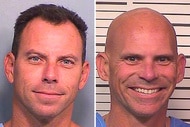Create a free profile to get unlimited access to exclusive videos, breaking news, sweepstakes, and more!
Woman Who Says Rape Allegation Was Dismissed As 'Immature Sex' Dusts Off 134-Year Old Law To Fight For Justice
Madison Smith says that in February 2018 she was raped by a classmate at Bethany College. When her alleged assailant got two years probation, she decided to take matters into her own hands.

A Kansas woman who says she was failed by the legal system after a consensual sexual encounter with a college classmate escalated to her violent rape is now seeking justice by petitioning a grand jury herself, using an archaic, 134-year-old law.
Madison Smith, 22, says that in February 2018 she was raped by a classmate at Bethany College after consensual sex turned violent in a dorm room. The fellow student at the college in Lindsborg slapped her across the face and strangled her with both hands, multiple times, as she tried to remove them, she says. As Smith struggled, he squeezed harder, and she quickly started to lose consciousness, as is detailed in a press release from her legal advisor.
Smith says she and her alleged rapist had no prior conversations about consensual violence. During the incident, she says her attacker forced her to perform oral sex and attempted anal penetration. A forensic exam she took afterward at a nearby hospital indicates that Smith had bruising around the neck and inside of her mouth, the Washington Post reported.
When Smith attempted to seek justice through the court’s traditional avenues, she said she was essentially shut down by County Attorney Greg Benefiel. In August 2020, her alleged rapist pleaded guilty to charges of aggravated battery and receive two years’ probation; he did not have any sexual assault charges filed against him. In a private meeting, Smith said that Benefiel told her that the alleged rape was merely “immature sex” and that he was unable to prosecute the case as rape because Smith didn’t verbally revoke consent while being strangled.
"I think anybody could realize that if you can’t breathe, you can’t speak," she told the Associated Press in an interview. "I really thought that he was going to kill me, and the only way I was going to leave that room was in a body bag. He would strangle me for 20 or 30 seconds at a time, and I would begin to lose consciousness.”
Benefiel, in an interview with the Washington Post, repeated the reasoning often heard when rape cases are not prosecuted — the evidence wasn’t there.
“There is no doubt in my mind that Madison believes that she was a victim of rape,” Benefiel told the outlet. “It was approached in that way, and then charging decisions were made based on the evidence that was available in the case. I don’t believe that we minimized this.”
Determined for justice, Smith linked up with attorney Justin Boardman, who trains police and prosecutors to investigate sex crimes. He took on her case pro bono and has advised her as she’s dusted off a frontier-era legal loophole that’s still on the books, and is only available in six U.S. states — Kansas, Oklahoma, New Mexico, North Dakota, Nebraska and Nevada.
The 1887 Kansas law allows citizens to bypass prosecutors and seek an indictment directly from a grand jury by collecting a certain percentage of signatures from county residents. The Gilded Age law was meant to curb corruption and was initially used to enforce temperance when authorities ignored violations. Lately, it has occasionally been used to prosecute abortion providers and operators of adult book shops in the deep-red state. It was also notably used to challenge former Kansas Secretary of State Kris Kobach’s right to appear as the GOP nominee for governor in 2018.
To have her case brought to a grand jury at the Ninth District Court of McPherson County, Smith had to obtain 329 signatures — 2% of votes cast in the county in the most recent gubernatorial election, plus 100, as The Kansan reported in August.
Smith told the AP that as she stood in a hair salon parking lot last May, telling her story of violent rape to strangers, again and again, several hugged her and some quietly told her of their experiences as victims of rape.
"They were very thankful that I was fighting, just fighting the justice system and trying to make a change in the world because they were too scared to fight back," she said.
In September, the petition was approved. Smith is set to have her day in court on Sept. 29, 2021. Whether or not the grand jury chooses to indict, her battle for justice is a milestone for the state of Kansas and the post-#MeToo fight against rape culture and what many victims of rape across the country view as a deep flaw in the legal system.
"This happens nationwide, worldwide, that victims and survivors are minimized by the prosecutors who don’t believe them," she told the AP. "That is not OK, because rape culture is so prevalent, and we need to get rid of it. and one of the ways to do that is to get our stories out there."
The Associated Press contributed to this report.























